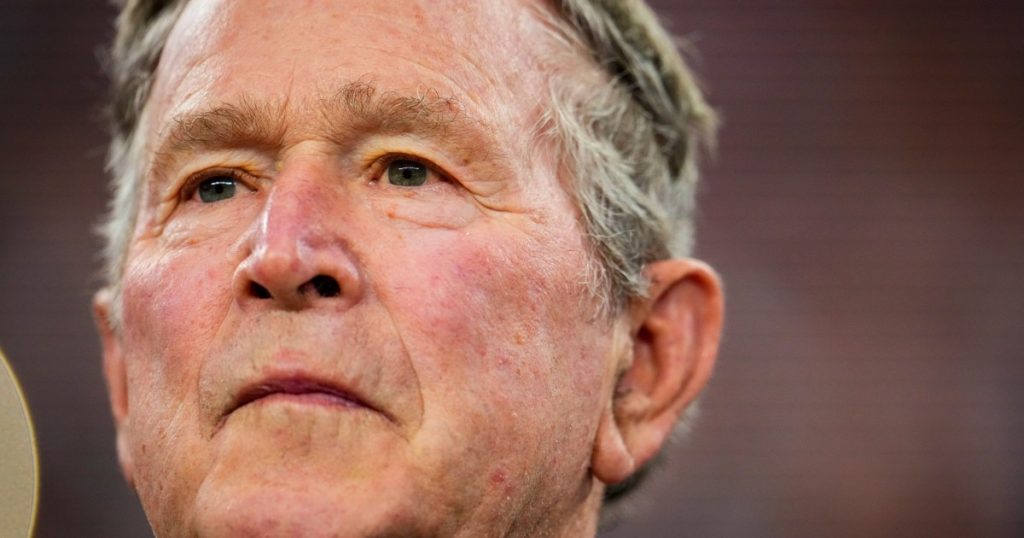Former President George W. Bush and his wife, Laura, have announced that they will not be endorsing a candidate for president in the upcoming election. This decision is in line with Bush’s previous stance of retiring from presidential politics years ago. The Trump campaign did not respond to requests for comment on Bush’s decision, but Vice President Kamala Harris’ campaign declined to comment. However, Dick Cheney, Bush’s former vice president, announced that he would be supporting Harris in the November election, citing Trump as a threat to the republic. Cheney’s daughter, former Rep. Liz Cheney, also stated that she would vote for Harris.
This move by Bush not to endorse a candidate is significant, especially considering his previous endorsements of Republican candidates in past elections, such as Mitt Romney in 2012 and John McCain in 2008. In 2016, both Bushes refrained from commenting on Trump and did not support either major party nominee. In the 2020 election, Bush revealed that he wrote in former Secretary of State Condoleezza Rice for president. Despite policy differences, several prominent moderate Republicans and former Trump administration officials have also backed Harris, with the Harris campaign receiving endorsements from over two dozen Republicans, including former Governor Bill Weld of Massachusetts and former Rep. Denver Riggleman.
The Harris campaign’s outreach efforts to GOP voters have also been significant, with more than 200 former staffers for both Bush presidents, McCain, and Romney signing a letter endorsing Harris for president. The campaign has hired a national Republican engagement director to focus on independent and moderate Republican voters, as well as launching a Republicans for Harris program. Bush’s decision not to endorse a candidate reflects a growing trend of prominent Republicans breaking with the former president and supporting Harris, despite any policy differences they may have.
In response to reporters’ questions, Harris expressed gratitude for the Cheneys’ endorsements, stating that it is a reflection of their love for the country and common values. The support from prominent Republicans for Harris underscores a broader shift within the party away from Trump and towards candidates who are seen as a more stable and unifying force. Bush’s decision, along with the endorsements from Cheney and other Republicans, signals a growing consensus among some Republicans that Trump poses a threat to the democratic principles of the country and must be replaced by a more capable leader.
Overall, the lack of endorsement from Bush, along with the endorsements from prominent Republicans for Harris, highlights a growing divide within the Republican party. While some Republicans continue to support Trump, others are increasingly voicing their concerns and backing candidates who they believe align more closely with their values and priorities. This shift could have significant implications for the upcoming election and the future direction of the Republican party.












